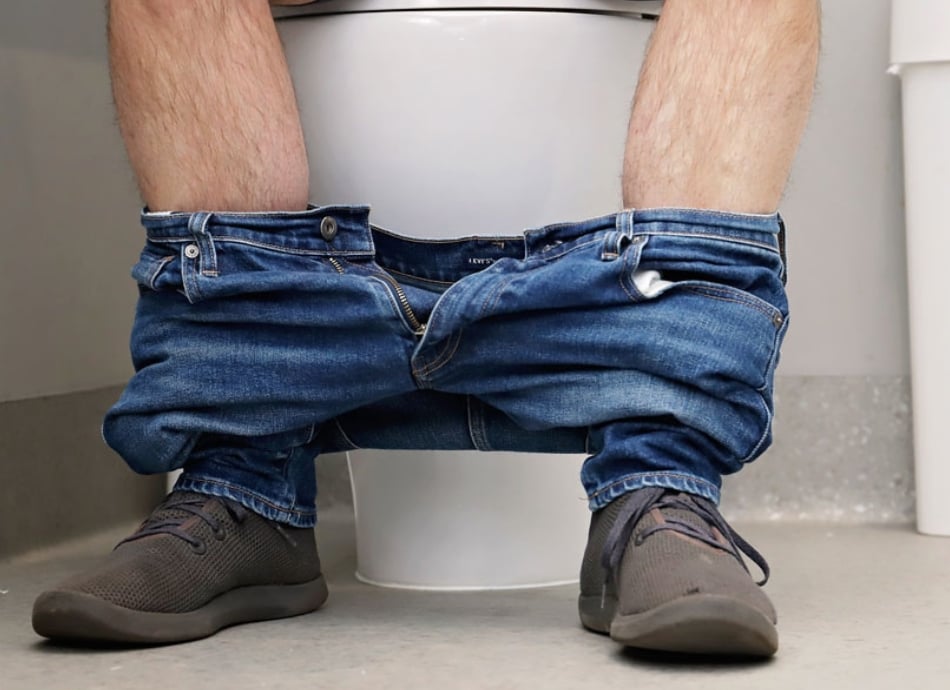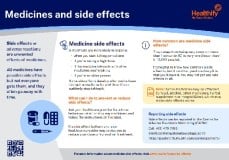You can now add Healthify as a preferred source on Google. Click here to see us when you search Google.
Docusate and senna
Key points about docusate and senna
- Docusate and senna is a laxative used to relieve and prevent constipation.
- Docusate and senna is also called Laxsol®, Solax® and Coloxyl with Senna®
- Find out how to take it safely and possible side effects.

Docusate and senna is used to relieve constipation and is mainly used when you're already constipated. It may also be taken every day to prevent constipation in people who are at risk, for example if you're taking medicines that cause constipation such as opioid medicines or clozapine.
It's a combination of 2 medicines, docusate and senna, in a single tablet.
- Docusate increases the amount of fluid in your stools (poo) to soften them and make them easier to pass.
- Senna stimulates the muscles in your gut to help move your stools along so they can be passed more easily.
Learn more about constipation and medicines for constipation (called laxatives).
Docusate and senna is available as different brands
Docusate and senna is available under different brand names. You can buy them from a pharmacy or get the funded brand on prescription. Because the same medicines may be sold under different names, make sure you don’t take more than one product containing docusate or senna at the same time. Brand names of docusate and senna include:
- Laxsol®
- Solax®
- Coloxyl with Senna®
Brand change
From December 2025 the funded brand of docusate and senna is changing from Laxsol to Solax.
- Solax tablets have the same active ingredients, in the same amount as Laxsol tablets, and are designed to work in the same way.
- The new tablets look similar (same size and the similar maroon colour) but the packaging is different.
- Solax comes in a bottle with 100 tablets (Laxsol comes in a bottle with 200 tablets).
For more information about this change, including images of the tablets and packaging, visit Pharmac: Laxsol brand change(external link).
If you have any questions about this brand change, talk to your healthcare provider.
- Always take your docusate and senna exactly as your healthcare provider has told you. The label on your medicine will tell you how much to take, how often to take it and any special instructions.In Aotearoa New Zealand docusate and senna are available as tablets.
- The usual dose of docusate and senna is 1 or 2 tablets at night.
- Some people may be prescribed higher doses (up to 4 tablets).
How to take docusate and senna
- Swallow your tablets with a full glass of water.
- You can take docusate and senna with or without food.
- It usually takes 6 to 12 hours before docusate and senna works and causes a bowel movement (poo). It can be taken at night to produce a poo in the morning.
- To relieve constipation take docusate and senna only as needed, when you're constipated.
- To prevent constipation take docusate and senna every day.
- Do you have other stomach or bowel problems?
- Are you pregnant, planning to become pregnant, or breastfeeding?
- Have you noticed a change in your poo that has lasted longer than 2 weeks?
If so, it’s important that you tell your healthcare provider before taking docusate and senna. Sometimes a medicine isn’t suitable for a person with certain conditions, or it can only be used with extra care.
Here are some things to know when you're taking docusate and senna. Other things may be important as well, so ask your healthcare provider what you should know about.
- Don't use it for longer than 1 week unless told to by your healthcare provider.
- Drink plenty of fluids while you're taking docusate and senna.
- Docusate and senna may make your pee and poo an orange-red colour. This is harmless.
- Taking other medicines: Docusate and senna may interact with some medicines, herbal supplements and rongoā Māori, so check with your healthcare provider before starting docusate and senna and before starting any new products.
Docusate and senna may make your pee and poo an orange-red colour. This is harmless.
The common side effects of laxatives are stomach pain or cramps, bloating, gas in your tummy and flatulence (farting).
Other side effects include the following:
- Constipation: Ongoing use of laxatives can lead to constipation because your bowel may lose muscle and nerve response, and may no longer move your poo properly. This leads to a dependency on the laxative and higher doses are needed to poo.
- Diarrhoea and dehydration: Taking too many laxatives can lead to diarrhoea (runny poo) and losing too much salt from your body.
The following links have more information on docusate and senna.
Docusate and sennoside B(external link) Patient Information, NZ Formulary
Brochures
Medicines and side effects [PDF, 91 KB] Healthify He Puna Waiora, NZ, 2024
5 questions to ask about your medications(external link) Health Quality and Safety Commission, NZ, 2019 English(external link), te reo Māori(external link)
References
- Docusate and sennoside B(external link) NZ Formulary
- Managing constipation in older people(external link) BPAC, NZ, 2019
Brochures

Medicines and side effects
Healthify He Puna Waiora, NZ, 2024

Health Quality and Safety Commission, NZ, 2019 English, te reo Māori
Credits: Healthify editorial team. Healthify is brought to you by Health Navigator Charitable Trust.
Reviewed by: Angela Lambie, Pharmacist, Auckland
Last reviewed:





